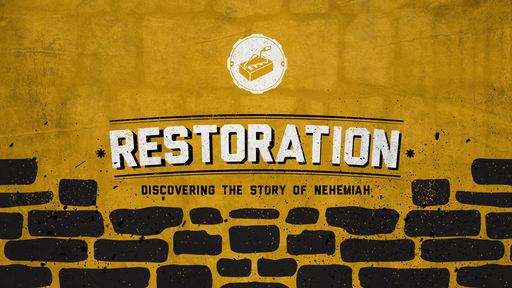Nehemiah

Intro
And the king granted me what I asked, for the good hand of my God was upon me.
Now the king had sent with me officers of the army and horsemen.
the mention of an imperial escort further stresses Nehemiah’s role as a new political force to be reckoned with in the eyes of the regional establishment
These two men will throw a long shadow over the story. Both of them were men of influence and power
Sanballat the Horonite and Tobiah the Ammonite
The term Horonite refers to the town of Sanballat’s provenance, Horonaim of Moab
Tobiah the Ammonite is probably an official in Samaria.
The exclusion of both groups, the Ammonites and the Moabites, is due to their failure to provide Israel with the basic necessities in their sojourn in the desert and their hiring of Balaam to curse God’s people
The OT itself revokes this exclusion when Ruth showed love to Naomi, embraced her God, and became a full member of the Israelite community, even becoming the great-great-grandmother of David
People do not drift toward holiness. Apart from grace-driven effort, people do not gravitate toward godliness, prayer, obedience to Scripture, faith, and delight in the Lord.
We drift toward compromise and call it tolerance; we drift toward disobedience and call it freedom; we drift toward superstition and call it faith. We cherish the indiscipline of lost self-control and call it relaxation; we slouch toward prayerlessness and delude ourselves into thinking we have escaped legalism; we slide toward godlessness and convince ourselves we have been liberated.
Citation: D. A. Carson, quoted in “Reflections,” Christianity Today (7-31-00)
Come, let us build the wall of Jerusalem, that we may no longer suffer derision.
Come, let us rebuild the wall of Jerusalem, and we will no longer be in disgrace.
come, and let us build up the wall of Jerusalem, that we be no more a reproach.
he believed it important to record in writing his profound conviction that everything was due to God’s arranging
So, with already a hostile Samaria and Ammon to the north and east, Judah was now virtually encircled, and the war of nerves had begun. There was an edge to the taunts in the word rebelling, for a case could always be trumped up which might change the king’s mind and excuse an attack or an assassination.
jeered at us and despised us
What is this thing that you are doing? Are you rebelling against the king?
